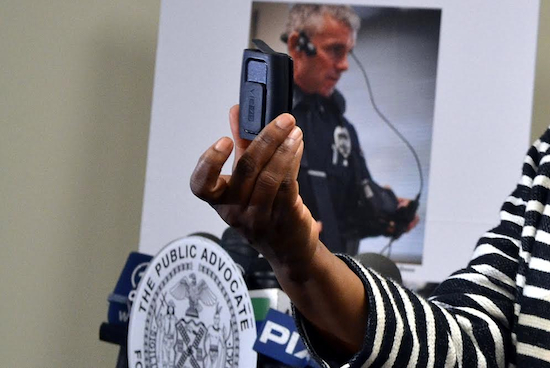Brooklyn police precinct to begin body camera pilot program

Training for NYPD’s body camera pilot program is set to begin this week for select police precincts, one of them in Brooklyn, officials stated Wednesday. The sped-up timetable comes days after President Barack Obama announced that he would seek federal funding for similar programs and on the day a Staten Island grand jury ruled not to indict a police officer for the chokehold death of Eric Garner.
Body cameras will “fundamentally change” policing, Mayor Bill de Blasio said at a press conference Wednesday afternoon.
Public Advocate Letitia James called for a pilot program in July in the immediate aftermath of Garner’s death. “We are living in an increasingly technological world, and we should take measures to incorporate video cameras into policing to improve public safety,” said James, who attended Wednesday’s news conference.
